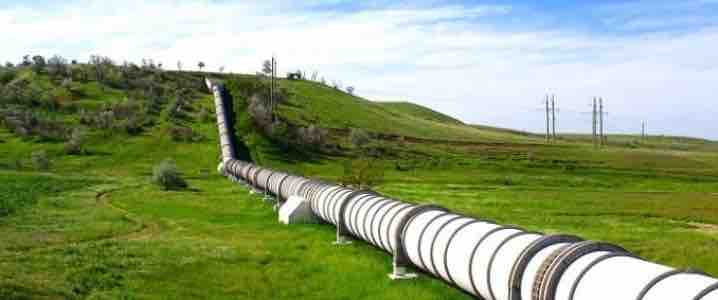January 2017, Vol. 244, No. 1
Features
How Trump Could Change LNG Markets

Researcher and analyst Gregory Brew suggested in a recent oilprice.com article that while the outlook for oil and gas has widely been positive since Donald Trump’s election, the effect of his presidency on American natural gas, and the LNG industry in particular, is more difficult to gauge.
Though the supply side of crude oil should show improvement, Brew pointed out a GlobalData analysis that puts the likely emphasis of Trump’s policies on domestic, rather than international considerations, could end up complicating things. His vow to carry out a trade war with China, as well as his calls for heavy tariffs on imported goods could limit U.S. access to export markets and reduce the competitiveness of U.S. energy products.
That’s where things get complicated for LNG, Brew said, since federal clearance is needed to approve additional export terminals, and an expansion in American LNG export capacity would need at least some cooperation from the federal government.
However, Charif Souki, former head of Cheniere Energy, said Trump’s protectionist policies won’t get in the way of business. Souki’s Tellurian Investments is planning an export plant in Louisiana, Driftwood LNG, with construction to begin in 2018. The plant will have a capacity of 26 mtpa.
As of October, the U.S. government had confirmed a number of LNG import and export terminals, mostly in the Gulf of Mexico, while Canada approved four of its own in British Columbia and Nova Scotia. Should all approved terminals be constructed, total North American LNG export capacity will increase dramatically.
Other oil and gas experts believe the effect of Trump’s policies may be minimal, noting rhetoric on the campaign trail hasn’t always been a great indicator of actual policy plans. Still, Trump’s confusion over what LNG is doesn’t generate confidence. Also, if Trump is serious about putting “America first” and concentrates on domestic demand rather than exports, it could be an obstacle to those, like Souki, who see a future for the United States as a major energy exporter.
Susan L. Sakmar, visiting assistant professor at University of Houston Law Center, said in a recent article the energy industry as a whole stands to benefit from Trump’s pro-business, anti-regulation stance. She added while his support of coal could pose a challenge for the natural gas industry since both fuels compete for power generation market share, it’s also possible for both to win under Trump.
“As LNG exports increase in coming years and natural gas prices rise, there could be a shift to use more coal for power generation, she said. “Whether this would impact any planned coal retirements in the coming years is an open issue, as is Trump’s support for renewables. It is worth noting, however, that renewables often have bipartisan support and many states have already adopted renewable portfolio standards.”
As far as whether Trump will allow more LNG export facilities to be built, for now, the LNG export review process seems to be working and there appears to be no need to either expedite or slow the process, she added.
ItIEA doesn’t expect major shifts in global energy use.
“Governments come and go around the world,” the IEA said. “We will wait for real policies to be announced and put in place.”
In Canada, governmental policies have become a factor in Malaysia’s Petronas withholding final word, possibly until April, on whether it will proceed with a proposed LNG gas plant on the British Columbia coast, according to Rich Coleman, provincial minister of natural gas development.
Petronas, which won conditional Canadian government approval in September after three years of regulatory review, is currently reassessing the project’s costs. The approval came with 190 conditions, including a cap on greenhouse-gas emissions.
Petronas is the majority owner of the multibillion-dollar Pacific NorthWest LNG project, which could produce as much as 19.2 mtpa of the fuel, or about 8% of 2015’s global trade. Its partners are China Petrochemical Corp., Japan Petroleum Exploration Co., Indian Oil Corp. and Brunei National Petroleum Co.
Farther south, hope is fading Alaska’s LNG project (AKLNG) will receive the move forward after partners BP, ConocoPhillips and ExxonMobil – pulled out.
This fall, Gov. Bill Walker spent thousands of dollars trying to convince Asian utility companies to help pay for a gas pipeline in Alaska. But lacking any solid commitments, those chairing the House Resource Committee aren’t convinced the project is going anywhere.
“I remain a skeptic on the state takeover of the AKLNG project,” said Rep. Geran Tarr, who will serve as co-chair of the committee in the House’s new, Democrat-led majority. “We’ll need to be very careful about whether we move forward and if this is the right time.”
The problem, simply stated, is that there’s more natural gas available than there is demand, so the price has plummeted. In Australia, seven competing gas projects are or will be up and running in the next two years – that’s on top of five others in the United States.
Nonetheless, LNG enthusiasts like Souki, along with major players like Cheniere, which has invested billions in LNG export terminals, will keep banking on growth in global natural gas demand to keep their businesses afloat.
Trump may well embark on isolationist, “America-first” energy policies that prove detrimental to energy exports. Then again, he may not. And even if he does, market conditions and global trends will continue shaping the natural gas landscape. In reality, the contributions of the new American president and his administration could end up being rather limited, Brew wrote.





Comments